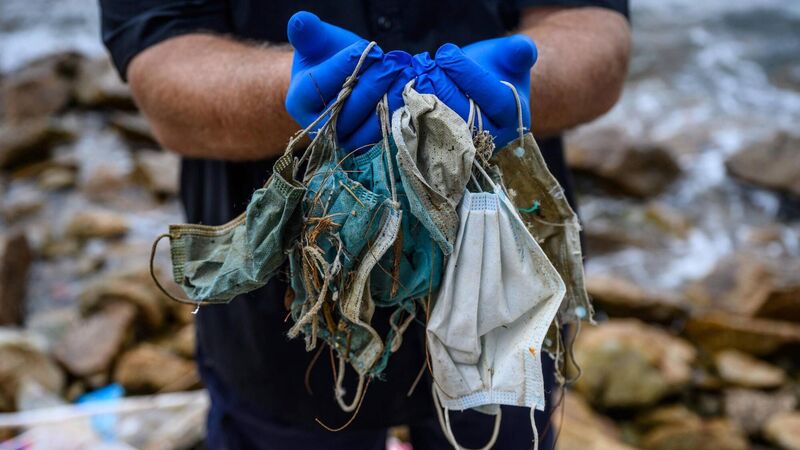Clodagh Finn: Whatever happened to the fight against plastic?

Environmental activist Gary Stokes displays some of the discarded face masks he found on a beach in the residential area of Discovery Bay on Lantau island, Hong Kong. Picture: Anthony Wallace/AFP/Getty
Keeping your head down has its advantages. For one thing, it helps you keep track of what is happening on the ground — literally. Take litter, for example. What better social barometer than the flotsam and jetsam on our footpaths? Examine what a person casts aside and you will also see what they once held near, if not dear.
By that reckoning, caffeine is still hitting the spot if the sad return of discarded disposable cups tells us anything. Single-use cups, crushed and decaying, are back with a vengeance.













